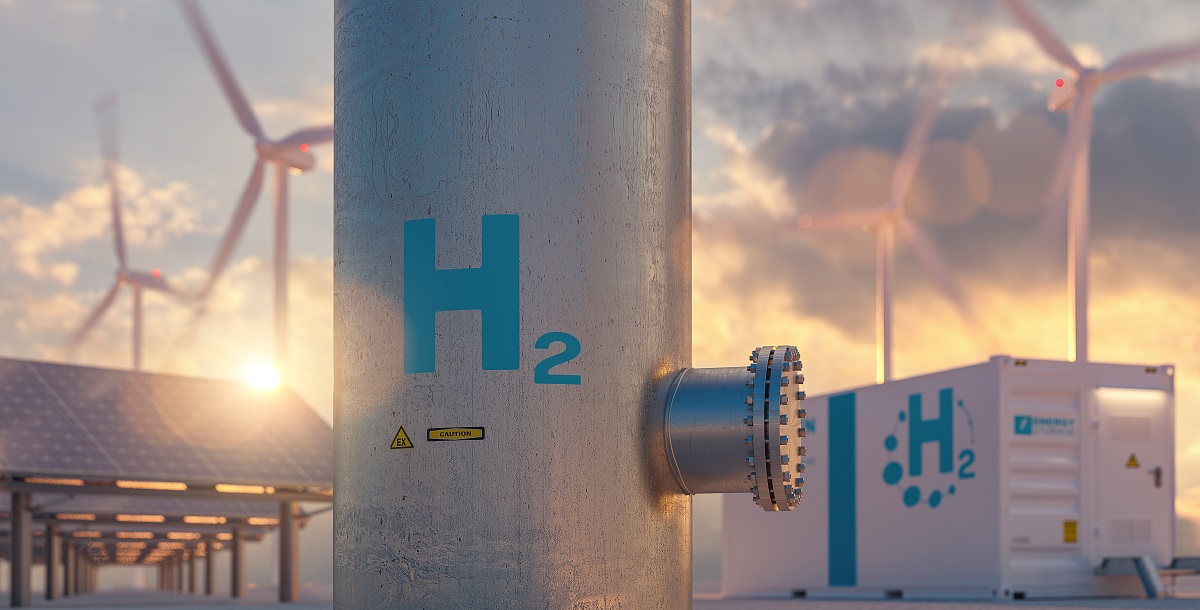Special meeting agreed to discuss hydrogen plant plans

Lewis Smith, local democracy reporter
A special meeting has been agreed to discuss controversial plans to build a new hydrogen plant near the village of Bryncethin.
The scheme, which has been named the HyBont Green Hydrogen Project, could see a hydrogen-powered plant built by Japanese developers Marubeni on the Brynmenyn industrial estate.
If given the go-ahead the project would include a hydrogen production facility with electrolysers to generate hydrogen from electrical power by splitting water, along with a solar farm, hydrogen storage and hydrogen refuelling station.
The hydrogen produced at the plant would be used to fuel vehicles, including refuse collection trucks, and buses and would be used to heat the Ynysawdre Cluster through a 1.2km underground pipe.
The planning application has sparked a significant backlash from local residents, who say the proposals are inappropriate due to safety fears about the proximity of the plant to residential areas and a lack of clarity in the plans.
Protest
In June, dozens of people joined a protest against the plans outside the Bridgend Council offices before a full council meeting
In response the council have now agreed to a special planning meeting to discuss the application, as well as a site visit before-hand.
The report read: “The Local Planning Authority are currently processing the above application and although, at this stage, there is no set date for when the application will be presented to the Development Control Committee, the scale of the development and the level of public objection would justify members considering the proposal at a Special Meeting of the Development Control Committee in line with the adopted Code of Practice.”
The idea was later approved unanimously by members in attendance, and while no date has been set for the meeting, officers indicated that it could still be held before the end of 2023.
They also noted that while they would still plan for this special meeting to go ahead in the coming months, there had been a request for the Welsh Government to call in the decision for the HyBont Green Hydrogen Project, which would take the power to reject or approve the application out of the local authorities hands.
Support our Nation today
For the price of a cup of coffee a month you can help us create an independent, not-for-profit, national news service for the people of Wales, by the people of Wales.






Hydrogen is a con. The electrolysis process is only 70-80% efficient, losing at least 20% of the energy in the conversion process. Burning Hydrogen presumably in an adapted Internal combustion engine has at best a 30% efficiency losing 70% of the energy enbedded in the hydrogen. Better to just use batteries.
“Burning Hydrogen presumably in an adapted Internal combustion engine”
That will produce approximately the same amount of NOx as you get from a std engine, so if your aim is clean exhaust gasses then you need a fuel cell. (invented by a Welshman ).
Swansea born and fascinating tech, but expensive, more complicated and does not, at present, seem to last as long as batteries. Max 60% efficient at present so still energy losses. But fuel cells at present seem unlikely to be adopted by automotive despite the work Toyota put into this, they backed the wrong solution in the end and as a result likely to go bust in next decade.
And for those who can’t charge at home? Do we then have to queue up at public chargers waiting for hours to get mobile again after spending double the price or more per kwh? No thank you, I’d rather pay for H2 and have the freedom to move about without tethering myself to an expensive and battery damaging rapid charger several times a month. H2 is not as much of a con as you think it is. And BEVs aren’t the panacea you believe them to be. Some electrolysis is now nearing 95% efficiency, and some fuel cells approaching over… Read more »
“But if H2 is cheap who cares about the overall system efficiency?” We should all care about the overall system efficiency !! H2 is not cheap Electrolysis is the most expensive & inefficient way to produce Hydrogen, it also requires large amounts of clean water ( mains drinking water has to be filtered & de-mineralised ) . Steam reformation of natural gas (CH4) is the cheapest & most efficient way to obtain H2, The SMR process was developed in 1932 & provides ~95% of all H2 . FCEVs have a much higher purchase price than both conventional vehicles and battery… Read more »
At first glance Hydrogen (H2) appears to be ‘the new wonder fuel’ – Abundant, Light, Clean-ish, No Carbon, High Mass Energy Density; what’s not to like – … but, the devil is always in the detail … & there are a lot of unintended consequences !!! Hydrogen (H2) is NOT AN ENERGY SOURCE, … it’s an energy store (like a flywheel, a spring, an elastic band ), you always have to put more energy in, than you’ll ever get out. ( the laws of thermodynamics can’t be changed to suit the latest popular ‘magic thinking’ !! ) Using natural gas,… Read more »
Well put and absolutely correct.